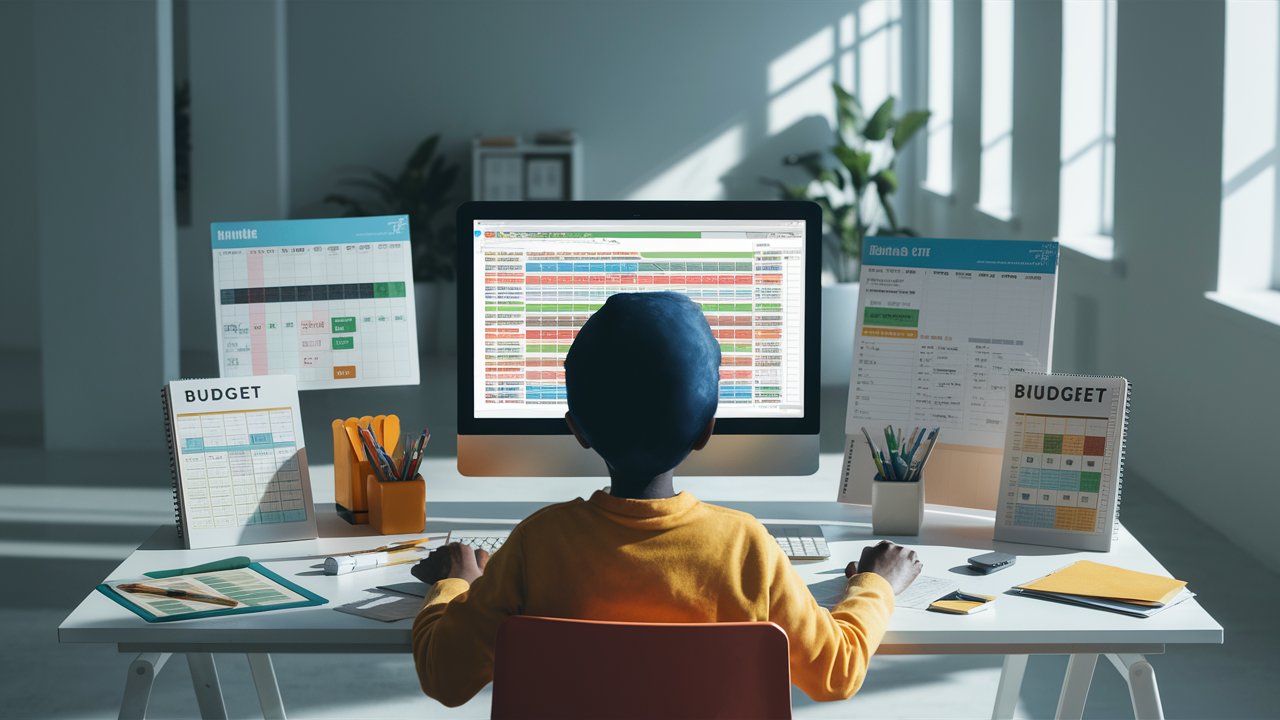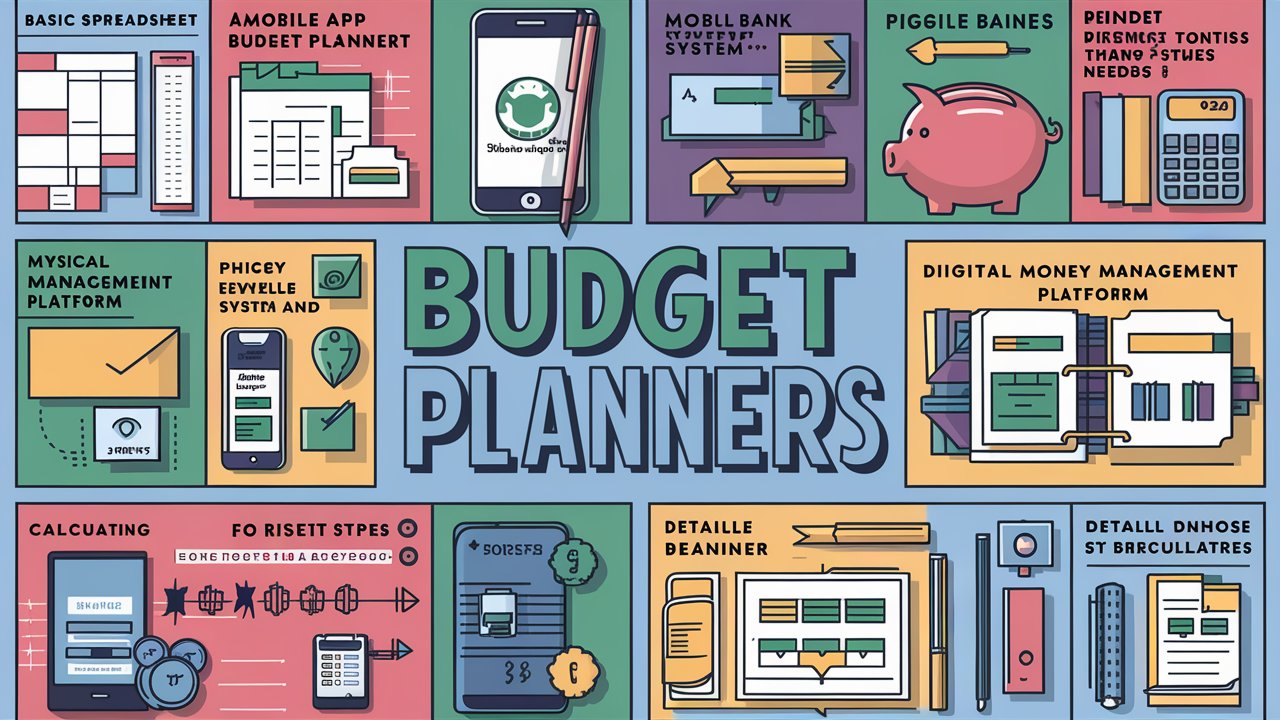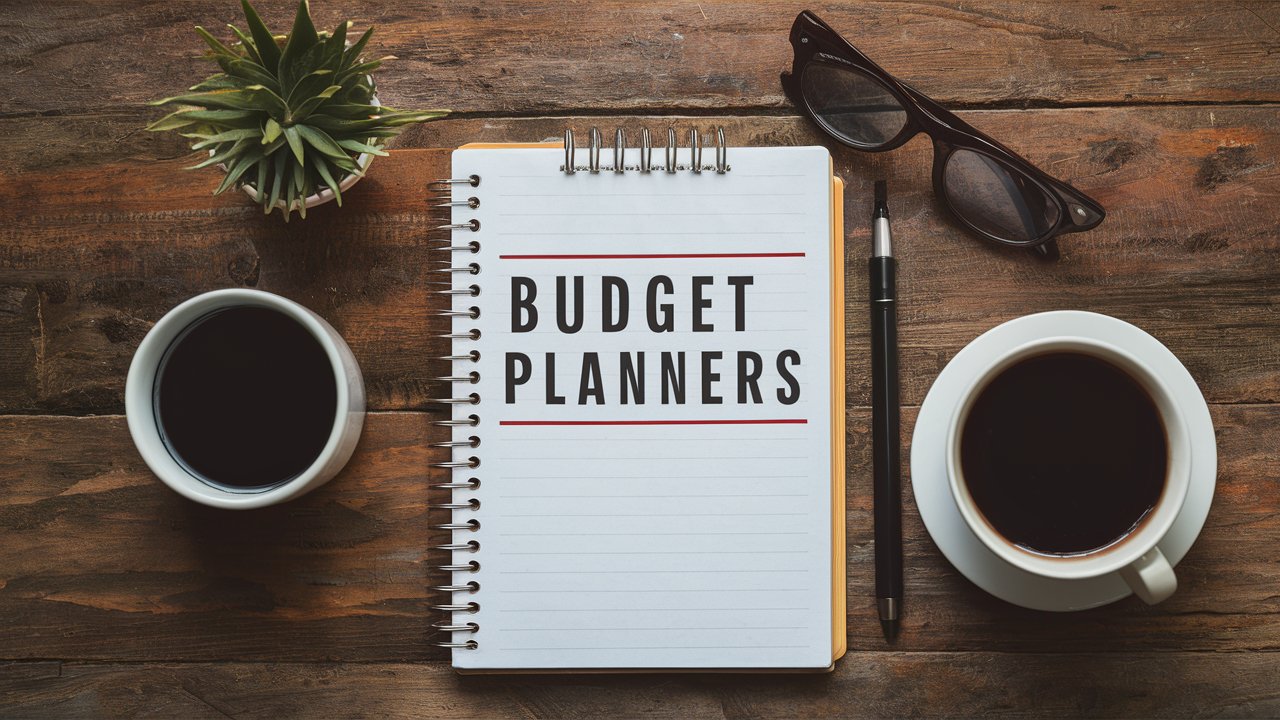Table of Contents
ToggleMastering Your Finances with Budget Planners

Introduction
In today’s fast-paced world, managing personal finances can be a daunting task. With expenses mounting and financial goals to achieve, having a reliable system to track and control spending is essential. This is where budget planners come in. Budget planners are not just tools; they are lifelines for financial stability and growth. Whether you’re looking to save for a dream vacation, pay off debt, or simply get a better handle on your daily expenses, budget planners can help you achieve your goals.
Budget planners are designed to provide structure and clarity to your financial life. They come in various forms, from traditional pen-and-paper planners to sophisticated digital apps, each tailored to different needs and preferences. In this article, we will explore the world of budget planners, their benefits, and how to choose the right one for you. We will also delve into practical tips for using these tools effectively to transform your financial habits.
Understanding Budget Planners
Budget planners are tools that help individuals track their income, expenses, savings, and investments. They are designed to give a clear picture of one’s financial situation and provide a roadmap for achieving financial goals. Budget planners can be physical notebooks or digital applications, each offering unique features to cater to different user needs.
The primary purpose of a budget planner is to help users:
- Track their spending
- Monitor income and expenses
- Set and achieve financial goals
- Plan for future expenses
- Identify areas for saving money
Using a budget planner can lead to better financial discipline and ultimately, greater financial security.
The Benefits of Using Budget Planners
- Improved Financial Awareness: One of the most significant advantages of using budget planners is improved financial awareness. By regularly recording your income and expenses, you gain a clear understanding of where your money is going. This awareness is the first step toward making informed financial decisions.
- Goal Setting and Achievement: Budget planners allow you to set specific financial goals, such as saving for a down payment on a house, paying off credit card debt, or building an emergency fund. By breaking down these goals into manageable steps and tracking your progress, you are more likely to achieve them.
- Reduced Financial Stress: Knowing that you have a plan in place for your finances can significantly reduce stress. Budget planners provide a sense of control and direction, which can alleviate the anxiety associated with money management.
- Better Spending Habits: Tracking your expenses in a budget planner helps you identify patterns and areas where you can cut back. This awareness can lead to better spending habits and more mindful financial choices.
- Planning for the Future: Budget planners help you prepare for future expenses, whether they are predictable, like holiday gifts, or unexpected, like car repairs. By setting aside money for these expenses in advance, you can avoid financial surprises.
Choosing the Right Budget Planner
When it comes to choosing a budget planner, there are several factors to consider. The best budget planner for you will depend on your personal preferences, financial goals, and lifestyle.
Types of Budget Planners
- Physical Planners: These are traditional paper-based planners that you can write in. They are ideal for those who prefer a tactile, hands-on approach to budgeting. Physical planners often come with sections for different financial categories, monthly calendars, and goal-setting pages.
- Digital Planners: These are software applications or online tools that can be accessed via a computer or mobile device. Digital planners offer the convenience of tracking your finances on the go and often come with features like automatic expense categorization, notifications, and data analysis.
- Hybrid Planners: Some budget planners combine both physical and digital elements. For example, you might have a physical planner for daily use and a digital app for tracking expenses and generating reports.
Features to Look For
When selecting a budget planner, consider the following features:
- User-Friendly Interface: Whether you choose a physical or digital planner, it should be easy to use and navigate.
- Customization Options: Look for planners that allow you to customize categories and layouts to suit your needs.
- Goal-Setting Tools: A good budget planner should include tools for setting and tracking financial goals.
- Expense Tracking: Ensure the planner provides a straightforward way to record and categorize expenses.
- Reporting and Analysis: Digital planners often offer detailed reports and analysis of your spending habits, which can be very useful for identifying areas for improvement.
- Portability: If you prefer a physical planner, choose one that is easy to carry around. For digital planners, ensure they are accessible across multiple devices.
Popular Budget Planners
There are many budget planners available, each with its unique features and benefits. Here are a few popular options:
- The Happy Planner Budget Edition: This is a popular physical planner known for its colorful design and comprehensive budgeting sections. It includes monthly calendars, expense trackers, and goal-setting pages.
- YNAB (You Need A Budget): This is a highly regarded digital budgeting tool that offers detailed expense tracking, goal setting, and financial education resources. YNAB is known for its user-friendly interface and effective budgeting principles.
- Mint: Mint is a free digital budgeting app that automatically categorizes your expenses and provides detailed reports on your spending habits. It also offers bill reminders and credit score monitoring.
- EveryDollar: Developed by Dave Ramsey, EveryDollar is a digital budgeting tool that follows the zero-based budgeting method. It offers a simple interface and tools for tracking income and expenses.
- Clever Fox Budget Planner: This is a physical planner designed to help you set and achieve financial goals. It includes sections for monthly budgeting, expense tracking, debt management, and goal setting.
Getting Started with Your Budget Planner
Once you’ve chosen the right budget planner for you, it’s time to get started. Here are some steps to help you make the most of your budget planner:
- Set Clear Financial Goals: Before you start tracking your income and expenses, take some time to define your financial goals. These could include short-term goals, like saving for a vacation, or long-term goals, like buying a home. Write these goals down in your budget planner and break them into smaller, manageable steps.
- Track Your Income and Expenses: Begin by recording all sources of income and your regular expenses. Be thorough and include everything from your monthly salary to small, everyday purchases. Categorize your expenses to see where your money is going.
- Create a Monthly Budget: Based on your income and expenses, create a monthly budget. Allocate funds for different categories, such as housing, groceries, entertainment, and savings. Make sure your budget is realistic and achievable.
- Monitor Your Progress: Regularly update your budget planner with your income and expenses. Review your progress at the end of each month and adjust your budget as needed. This will help you stay on track and make informed financial decisions.
- Adjust and Refine: Budgeting is an ongoing process. As you use your budget planner, you may find that certain categories need more or less funding. Be flexible and willing to adjust your budget as your financial situation changes.

Practical Tips for Using Budget Planners Effectively
To get the most out of your budget planner, consider the following practical tips:
- Be Consistent: Consistency is key when it comes to budgeting. Make it a habit to update your budget planner regularly. Set aside time each week to review your finances and make necessary adjustments.
- Be Honest: When recording your income and expenses, be honest with yourself. It’s important to have an accurate picture of your financial situation to make effective decisions. Don’t overlook small expenses, as they can add up over time.
- Stay Motivated: Budgeting can sometimes feel like a chore, but staying motivated is crucial. Remind yourself of your financial goals and the benefits of budgeting. Celebrate your progress and achievements, no matter how small.
- Use Technology: If you’re using a digital budget planner, take advantage of its features. Set up notifications and reminders to stay on top of your finances. Use the reporting tools to analyze your spending habits and identify areas for improvement.
- Seek Support: If you’re struggling with budgeting, don’t hesitate to seek support. Join budgeting communities or seek advice from a financial advisor. Sometimes, discussing your financial goals and challenges with others can provide valuable insights and motivation.
Common Challenges and How to Overcome Them
While budget planners are incredibly useful, they can present some challenges. Here are common obstacles and tips for overcoming them:
- Staying Consistent: Many people find it challenging to stay consistent with their budgeting efforts. To overcome this, set a regular schedule for updating your budget planner. Consider using digital tools that offer reminders and notifications to keep you on track.
- Dealing with Unexpected Expenses: Unexpected expenses can throw off your budget. To manage this, create an emergency fund within your budget planner. Allocate a portion of your income each month to this fund to cover unforeseen costs.
- Balancing Needs and Wants: It can be difficult to differentiate between needs and wants, leading to overspending on non-essential items. Use your budget planner to prioritize essential expenses and limit discretionary spending. Set clear boundaries for non-essential purchases.
- Maintaining Motivation: Budgeting requires ongoing effort, and it’s easy to lose motivation. To stay motivated, focus on your financial goals and the progress you’ve made. Celebrate small victories and remind yourself of the long-term benefits of budgeting.
How to Deal with Unexpected Expenses 101 Tips
FAQs About Budget Planners
- What is a budget planner: A budget planner is a tool designed to help individuals track their income, expenses, savings, and financial goals. It can be a physical notebook or a digital application
- How do I choose the right budget planner for me: Consider your personal preferences, financial goals, and lifestyle when choosing a budget planner. Look for features like user-friendliness, customization options, and expense tracking.
- Can budget planners help me save money: Yes, budget planners can help you save money by providing a clear picture of your financial situation and identifying areas where you can cut back on expenses.
- Are digital budget planners better than physical ones: It depends on your preferences. Digital budget planners offer convenience and advanced features, while physical planners provide a tactile, hands-on approach to budgeting.
- How often should I update my budget planner: It’s recommended to update your budget planner regularly, at least once a week, to stay on top of your finances and make necessary adjustments.
- What are some popular budget planner apps: Popular budget planner apps include YNAB (You Need A Budget), Mint, and EveryDollar. Each app offers unique features and benefits to cater to different budgeting needs.
Conclusion
Budget planners are invaluable tools for achieving financial stability and growth. Whether you choose a physical notebook or a digital app, a budget planner can help you track your income and expenses, set and achieve financial goals, and develop better spending habits. By choosing the right budget planner and using it consistently, you can take control of your finances and work towards a brighter financial future. Remember, the key to successful budgeting is consistency, honesty, and motivation. With the right tools and mindset, you can master your finances and achieve your financial dreams.
Mastering 7 Key Budgeting Categories for Unstoppable Financial Stability
The Best Ultimate Guide to Personal Capital Budgeting Methods 101
For more information regarding Finance Basic you can visit FinancewithAi Channel & Home
Share this:
- Click to share on LinkedIn (Opens in new window)
- Click to share on Reddit (Opens in new window)
- Click to share on Tumblr (Opens in new window)
- Click to share on Pinterest (Opens in new window)
- Click to share on Pocket (Opens in new window)
- Click to share on Telegram (Opens in new window)
- Click to share on Threads (Opens in new window)
- Click to share on WhatsApp (Opens in new window)
- Click to share on Mastodon (Opens in new window)
- Click to share on Nextdoor (Opens in new window)
- Click to share on Bluesky (Opens in new window)

Pingback: 50/30/20 Rule Spreadsheet: Easy Money Management